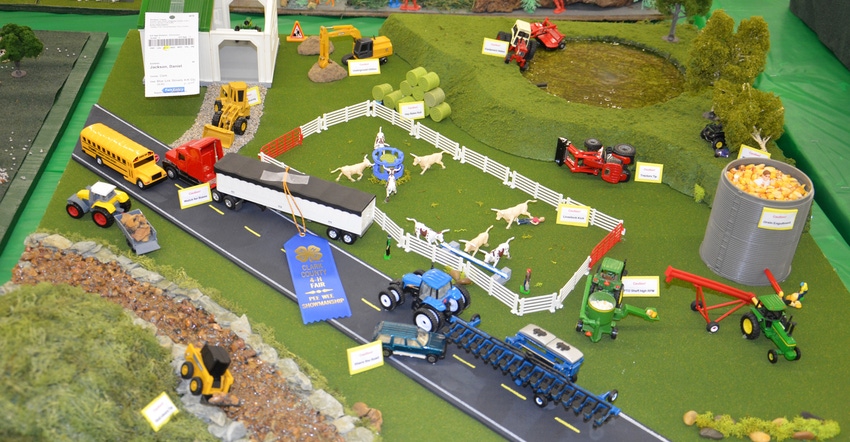August 23, 2018

A couple of weeks ago I observed that interest in traditional 4-H seemed to be waning. Many of my observations were based on judging various projects — almost anything but livestock — at various county fairs over the past few years. Many county fairs are seeing a continuous decline in the number of 4-H exhibits and exhibitors.
I’m not the only one making this observation. Parents, 4-H’ers and past 4-H’ers, even Extension educators — although always off the record — have made similar comments.
In that previous blog, I offered several theories as to why there is a decline in participation, such as hefty state 4-H dues instituted a few years ago, repetitive online registration procedures, the sheer number of opportunities for kids to do other things, and more. I ended the blog by saying I would come back to the subject and offer some possible partial solutions.
Possible solutions
Let me say at the outset that these are only my ideas, and there are many other possibilities. There’s also no guarantee these ideas would work. Here goes:
• Take a hard look at current dues structure. Do dues to participate in 4-H really need to be as high as they are today at the state level? There may be legitimate reasons for charging these fees. It’s also true that some families must make hard choices, especially if they have several children. Do they spend money so they can compete in sports, for example, or do they enroll them in 4-H instead? Not everyone will choose 4-H.
• Could online sign-up procedures be simplified? Parents seem to mention this one a lot. What frustrates parents with livestock is that their children must enroll in 4-H online, then enter livestock by a mid-May deadline, and then enter them again prior to the county fair. We’re told that final entry process can be time-consuming. Does absolutely everything have to be done by computer?
• How about showing some common-sense understanding? Sometimes people make mistakes on computers. I certainly do — every day! Why make a 4-H’er and parent file a grievance to exhibit animals because they thought they completed the form correctly, but something went awry? Yet it’s happened; it happened this year. Is that the best way to encourage kids and families to continue with 4-H?
• Seek out qualified project leaders and form project clubs. Some counties already do this. Maybe there are volunteers skilled in photography willing to donate their time as club leaders of a countywide photography club. In my experience, when there’s a county club with excited, qualified leaders, there’s usually far more interest in the project.
• Require 4-H meeting attendance and/or meaningful record sheets. Some counties have one or both requirements. If they’re required, meetings should be productive, fun and purposeful. Some counties have gone to a one-size-fits-all record sheet. If you have hogs and enter one line on a one-size-fits-all record sheet, did you really learn anything from doing it? The kids I’ve assisted in that situation certainly didn’t. What’s wrong with record sheets for livestock projects that ask for feeding records, weights and feed costs, and help determine if you made money or not?
• Take 4-H back into schools. Several years ago, nearly 50 kids exhibited soil and water conservation projects in one county because fifth-grade teachers at one school adopted it as a project. Schools are busy places, but it might be worth asking.
OK, if it sounds like some of these ideas are old-fashioned, you’re right on target. Some “old-fashioned ideas” worked well for a long time. Yes, times have changed, but has 4-H changed with the times or changed just for change’s sake?
You may have better ideas than I do. Let me know at [email protected].
You May Also Like




